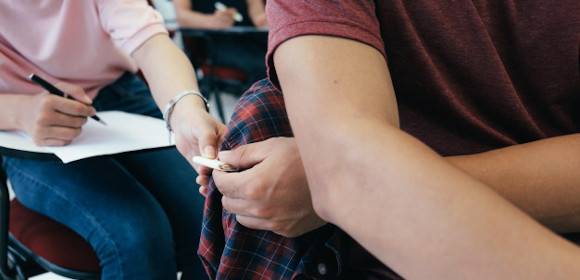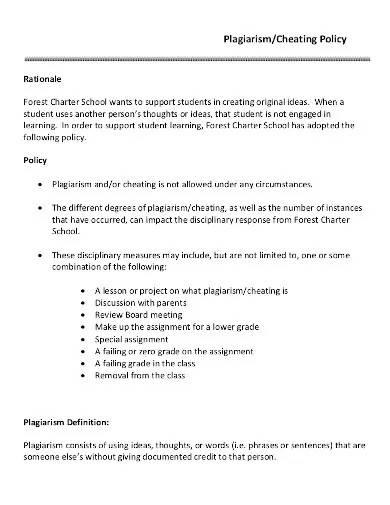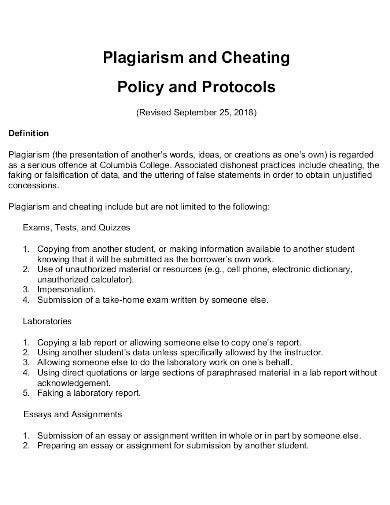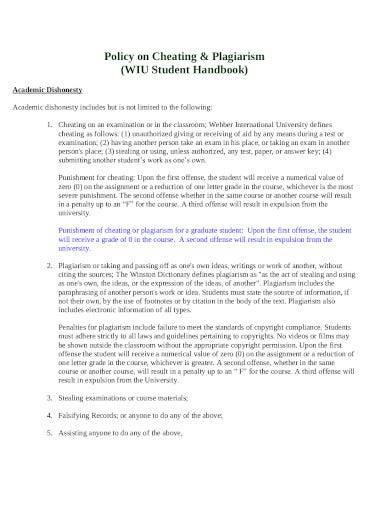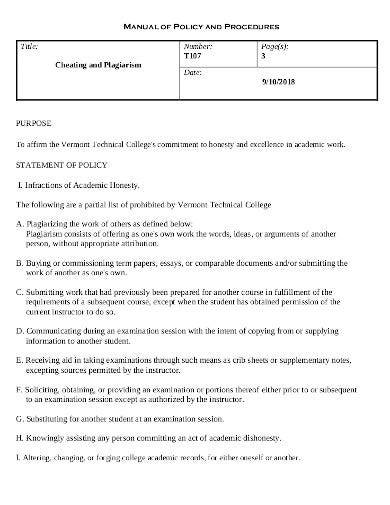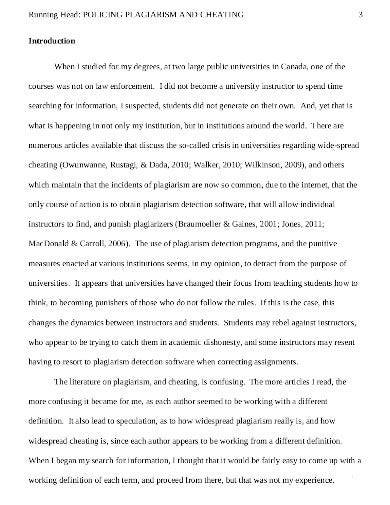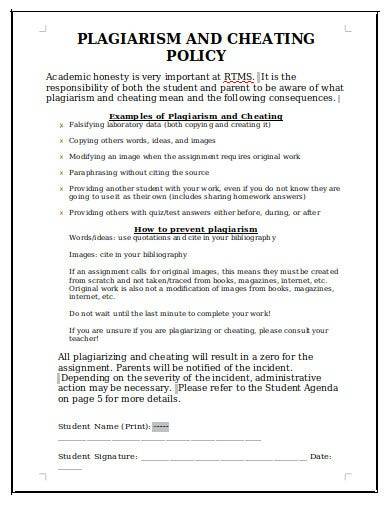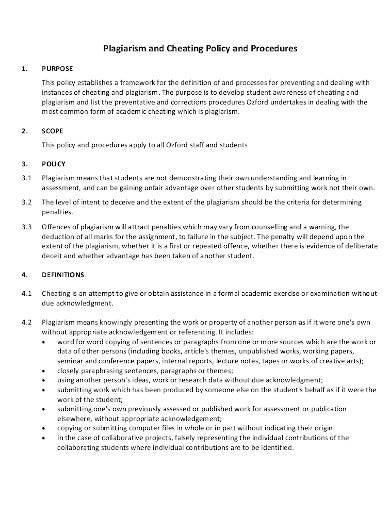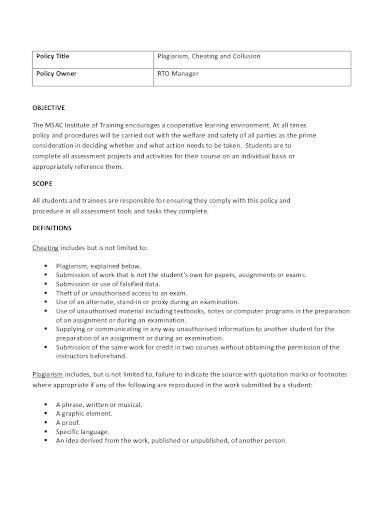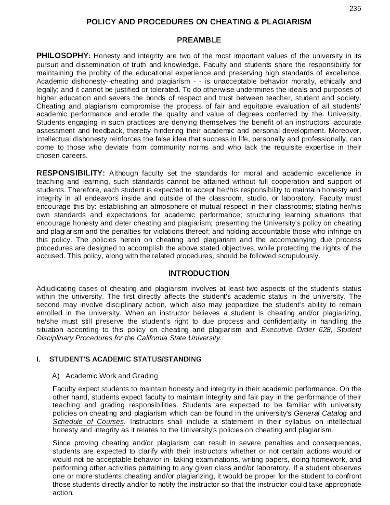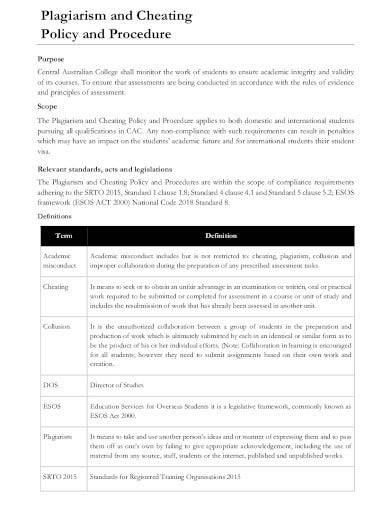Most educational institutions have a plagiarism/cheating policy in place to ensure that students are held accountable for their actions and to maintain academic integrity. These policies typically outline the specific types of behavior logs that are considered to be plagiarism or cheating, such as copying and pasting from online sources or collaborating with other students when it is not allowed.
FREE 10+ Plagiarism/Cheating Policy Samples
1. Plagiarism/Cheating Policy Template
2. Plagiarism/Cheating Policy and Protocols
3. Sample Policy on Cheating and Plagiarism
4. Cheating and Plagiarism Manual Policy
5. Plagiarism/Cheating Policy Sample
6. Plagiarism & Cheating Policy Format
7. Plagiarism and Cheating Policy and Procedure
8. Plagiarism/Cheating and Collusion Policy
9. Policy and Procedure on Plagiarism and Cheating
10. Plagiarism & Cheating Policy and Procedure
11. Middle School Plagiarism/Cheating Policy
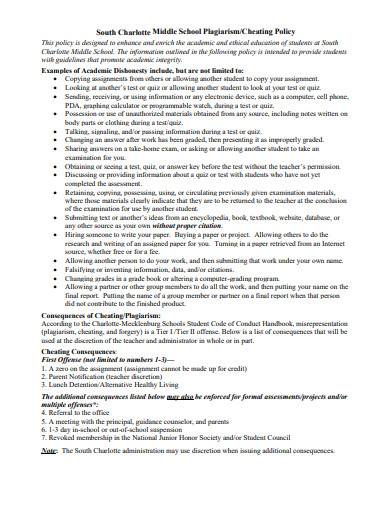
schools.cms.k12.nc.us
What is Plagiarism/Cheating Policy Samples?
A plagiarism/cheating policy is a set of rules and guidelines that define what after action report are considered to be plagiarism or cheating, and what the consequences are for those who engage in such activities. Plagiarism is the act of using someone else’s work without giving proper credit or permission, while cheating is the act of dishonestly completing an academic general assignment or exam.
How To Make Plagiarism/Cheating Policy Samples?
Plagiarism and cheating are not only ethically wrong, but they also undermine the entire educational system. When making a plagiarism/cheating policy, it is important to consider the specific needs and requirements of your educational institution. However, here are some general steps to follow when creating a plagiarism/cheating policy:
Step 1- Define plagiarism and cheating
Start by defining what plagiarism and cheating are and how they can occur. Provide examples of what is and is not considered plagiarism or cheating. Make sure that the definition is clear and concise so that students can understand what is expected of them.
Step 2- Outline the consequences
Clearly state the consequences for violating the plagiarism/cheating policy. This could include failing the assignment or exam, suspension and expulsion policy from school, or other disciplinary actions. Make sure that the consequences are appropriate and consistent with the severity of the offense.
Step 3- Provide guidance on how to avoid plagiarism
Provide resources and guidance on how to avoid plagiarism. This could include workshops samples, tutorials, or online tools that can help students identify and avoid plagiarism. Make sure that students have access to these resources and understand how to use them.
Step 4- Specify the penalties for plagiarism/cheating
Clearly specify the penalties for plagiarism/cheating, including what will happen if a student is caught plagiarizing or cheating. Explain the procedure scope of work for reporting and investigating suspected violations of the policy. Emphasize the importance of academic integrity and explain how the plagiarism/cheating policy supports integrity. Encourage students to take pride in their work and to uphold the standards.
What are the consequences of plagiarism/cheating?
The consequences for violating a plagiarism/cheating policy can vary, but they usually include a failing grade for the assignment or exam, suspension or expulsion from school, and other disciplinary actions.
How can I avoid plagiarism?
To avoid plagiarism, make sure to properly cite any primary source analysis that you use in your work, including text, images, and ideas. Use quotation marks for direct quotes and paraphrase other people’s ideas in your own words, making sure to still provide proper attribution.
What resources are available to help me avoid plagiarism?
Many educational institutions offer resources to help students understand what plagiarism is and how to avoid it. These resources include workshops, tutorials, and online tools that can help students identify and avoid plagiarism.
In conclusion, plagiarism and cheating are serious offenses that can have severe consequences for students. Educational institutions have put in place strict plagiarism/cheating policies to ensure that students are held accountable for their actions and to maintain academic integrity. It is important for students to be aware of these policies and to follow them closely to avoid any negative consequences. By doing so, they will not only protect themselves but also uphold the integrity of the academic community as a whole.
Related Posts
FREE 10+ Sample Policy Memos in MS Word PDF | Google Docs
FREE 9+ Sample Cookies Policies in PDF
FREE 11+ Assignment of Insurance Policy Samples in PDF MS Word
FREE 8+ Linking Policy Samples in PDF
FREE 10+ Sample Policy Proposal Templates in PDF Google Docs ...
FREE 11+ Expense Reimbursement Policy Samples in PDF MS Word
FREE 9+ Sample Privacy Policy Samples in PDF
FREE 11+ Liability Policy Samples & Templates in PDF MS Word
FREE 10+ Employee Attendance Policy Samples in PDF MS Word
FREE 10+ Retail Return Policy Samples in PDF DOC
FREE 9+ Sample Delivery Policies in PDF
FREE 10+ Charity Volunteer Policy Samples & Templates in MS ...
FREE 14+ Sample Policy Memos in Google Docs MS Word | Pages ...
FREE 10+ Charity Complaints Procedure Policy Samples ...
FREE 6+ Charity Fundraising Policy Samples & Templates in MS ...
